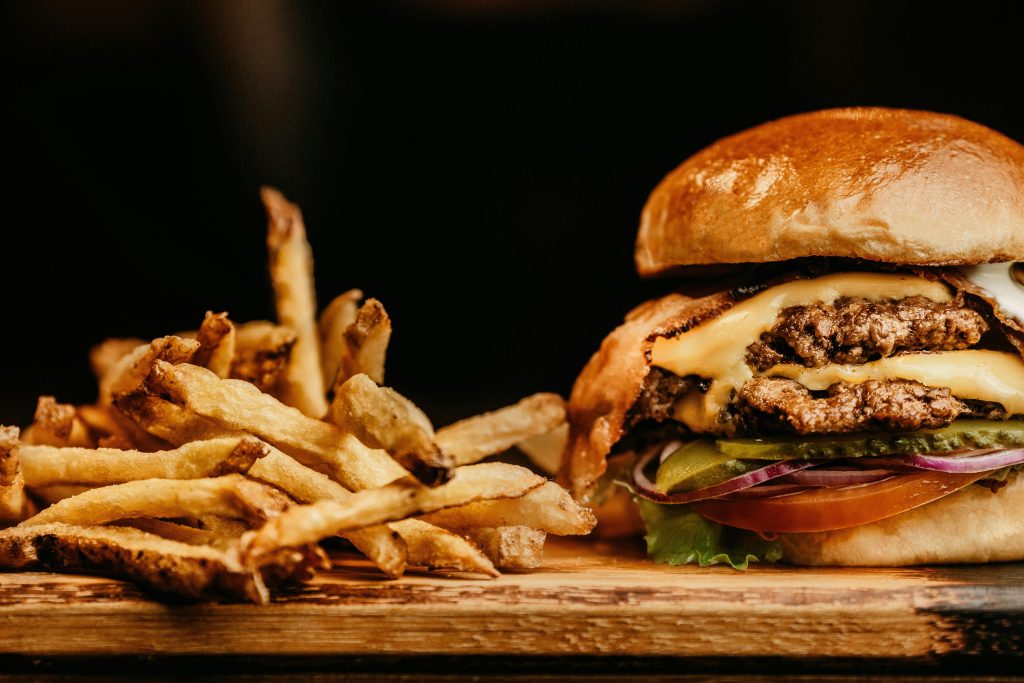The Unseen Chains
The scale dips, your clothes feel looser, and the compliments roll in. On the surface, weight loss seems like a straightforward equation of calories in versus calories out. Yet, for many, the real battleground isn’t the gym or the meticulously planned meals. The intricate and often invisible web of psychological dependence on food. While physical hunger is a biological imperative, this craving runs deeper, entwining itself with our emotions, memories, and coping mechanisms. It’s this psychological dependence that often throws a wrench in even the most determined weight loss journeys, making it arguably the most formidable hurdle to overcome.
As an expert in behavioral change and its intersection with nutrition, I’ve witnessed firsthand the profound impact of this psychological tether. It’s not simply about wanting a treat. It’s about food acting as a surrogate for comfort, a reward for a tough day, a distraction from boredom, or even a nostalgic link to cherished moments. Understanding and dismantling this dependence is not just a supplementary aspect of weight loss. It’s the cornerstone of sustainable, long-term success.

The Tangled Roots of Psychical Food Dependence:
The development of this dependence is rarely a conscious choice. It often stems from a complex interplay of factors:
- Early Childhood Associations: Food is frequently used as a tool for comfort and reward from a very young age. A scraped knee gets a cookie, good behavior earns ice cream. These early associations can create deeply ingrained neural pathways linking food with positive emotions and security.
- Emotional Regulation: In a world that often feels overwhelming, food can become a readily available and seemingly effective way to manage difficult emotions. Stress eating, comfort eating after a bad day, or using food to numb feelings of sadness or anxiety become learned behaviors. The temporary relief offered by high-calorie, palatable foods triggers the release of dopamine, reinforcing this cycle.
- Habit and Routine: Our lives are structured by routines, and food often plays a central role in these. Mindless snacking while watching television. Reaching for a pastry with our morning coffee. Indulging in specific foods during social gatherings. It all can become deeply ingrained habits, driven more by psychological cues than actual hunger.
- Reward and Reinforcement: Just like any addictive behavior, the pleasure derived from certain foods can create a powerful reward loop in the brain. The anticipation and consumption of these foods trigger the release of neurotransmitters associated with pleasure. It makes us crave them even when we’re not physically hungry.
- Body Image and Self-Esteem: Paradoxically, for some, food can become intertwined with feelings of guilt and shame related to body image. This can lead to cycles of restrictive dieting. They are followed by periods of overeating as a form of rebellion or self-sabotage, further solidifying the emotional connection to food.
- Social and Cultural Influences: Food is deeply embedded in our social fabric. Celebrations, gatherings, and even everyday interactions often revolve around eating. Navigating these social situations while trying to lose weight can trigger cravings and feelings of deprivation, leading to emotional eating.

The Vicious Cycle: How Psychical Dependence Sabotages Weight Loss:
This psychological reliance on food creates a formidable barrier to successful weight loss:
- Emotional Eating Triggers Overconsumption: When emotions become the primary driver of eating, we often bypass our body’s natural satiety cues. This leads to consuming more calories than needed, hindering weight loss efforts.
- Difficulty Adhering to Dietary Plans: Even with the best intentions, the powerful pull of emotional cravings can make it incredibly difficult to stick to a structured eating plan. The desire for comfort or reward can override logical choices.
- Increased Risk of Relapse: During periods of stress or emotional turmoil, the ingrained habit of turning to food for solace can lead to a complete derailment of progress. One “slip-up” can trigger feelings of guilt and failure, leading to a full relapse into old eating patterns.
- Negative Self-Talk and Shame: The inability to control emotional eating often leads to feelings of guilt, shame, and self-blame, further damaging self-esteem and creating a negative cycle that can perpetuate the dependence.
- Confusion Between Physical and Emotional Hunger: Over time, individuals may lose the ability to distinguish between genuine physiological hunger and the psychological urge to eat. This makes it challenging to respond appropriately to their body’s needs.

Breaking the Chains: Strategies for Overcoming Psychical Food Dependence:
Overcoming this deep-seated dependence requires a multifaceted approach that addresses both the behavioral and emotional aspects of eating:
- Self-Awareness and Identification of Triggers: The first crucial step is to become acutely aware of the situations, emotions, and thoughts that trigger emotional eating. Keeping a food and mood journal can be incredibly insightful in identifying these patterns. Ask yourself: What was happening before I felt the urge to eat? What emotions am I experiencing? What thoughts are going through my mind?
- Developing Healthy Coping Mechanisms: Once triggers are identified, the next step is to develop alternative strategies for managing emotions and stress that don’t involve food. This might include:
- Mindfulness and Meditation: Practicing mindfulness can help you become more aware of your emotions without judgment and learn to respond to them in healthier ways.
- Physical Activity: Exercise is a powerful stress reliever and can provide a healthy outlet for pent-up emotions.
- Creative Outlets: Engaging in hobbies like painting, writing, or playing music can provide a constructive way to express and process emotions.
- Social Connection: Talking to a trusted friend, family member, or therapist can provide emotional support and perspective.
- Relaxation Techniques: Deep breathing exercises, progressive muscle relaxation, or spending time in nature can help calm the nervous system.
- Challenging Negative Thought Patterns: Emotional eating is often fueled by negative self-talk and distorted thinking patterns. Cognitive Behavioral Therapy (CBT) techniques can be invaluable in identifying and challenging these thoughts. We need to replace them with more positive and realistic ones.
- Building a Supportive Environment: Surrounding yourself with supportive individuals who understand your goals can make a significant difference. Consider joining a support group or working with a therapist or coach who specializes in eating behaviors.
- Mindful Eating Practices: Cultivating mindful eating involves paying full attention to the experience of eating. The taste, texture, smell, and sensations of hunger and fullness. This can help you reconnect with your body’s natural cues and reduce mindless overeating.
- Gradual Changes and Self-Compassion: Overcoming psychical dependence is a journey, not a race. Be patient with yourself and celebrate small victories. Avoid restrictive dieting, which can often exacerbate emotional eating. Focus on making gradual, sustainable changes to your eating habits. Practice self-compassion when you experience setbacks, viewing them as learning opportunities rather than failures.
- Professional Guidance: Seeking professional help from a therapist, registered dietitian, or eating disorder specialist can provide you with personalized strategies and support to address the underlying psychological factors contributing to your food dependence. They can help you develop coping mechanisms, challenge negative thought patterns, and build a healthier relationship with food.

The Path to Food Freedom:
Breaking free from the psychical dependence on food is not about deprivation or restriction. It’s about gaining control and building a healthier, more balanced relationship with nourishment. It’s about recognizing that food serves its primary purpose of fueling our bodies and that our emotional needs deserve to be met through more sustainable and fulfilling means.
By understanding the roots of this dependence, recognizing its impact on our weight loss efforts, and implementing effective strategies to address it, we can move beyond the cycle of emotional eating and step onto a path towards lasting well-being. It’s a journey of self-discovery, resilience, and ultimately, the liberation from the unseen chains that have held us back. The reward is not just a number on the scale, but a profound sense of freedom and control over our lives and our relationship with food.

